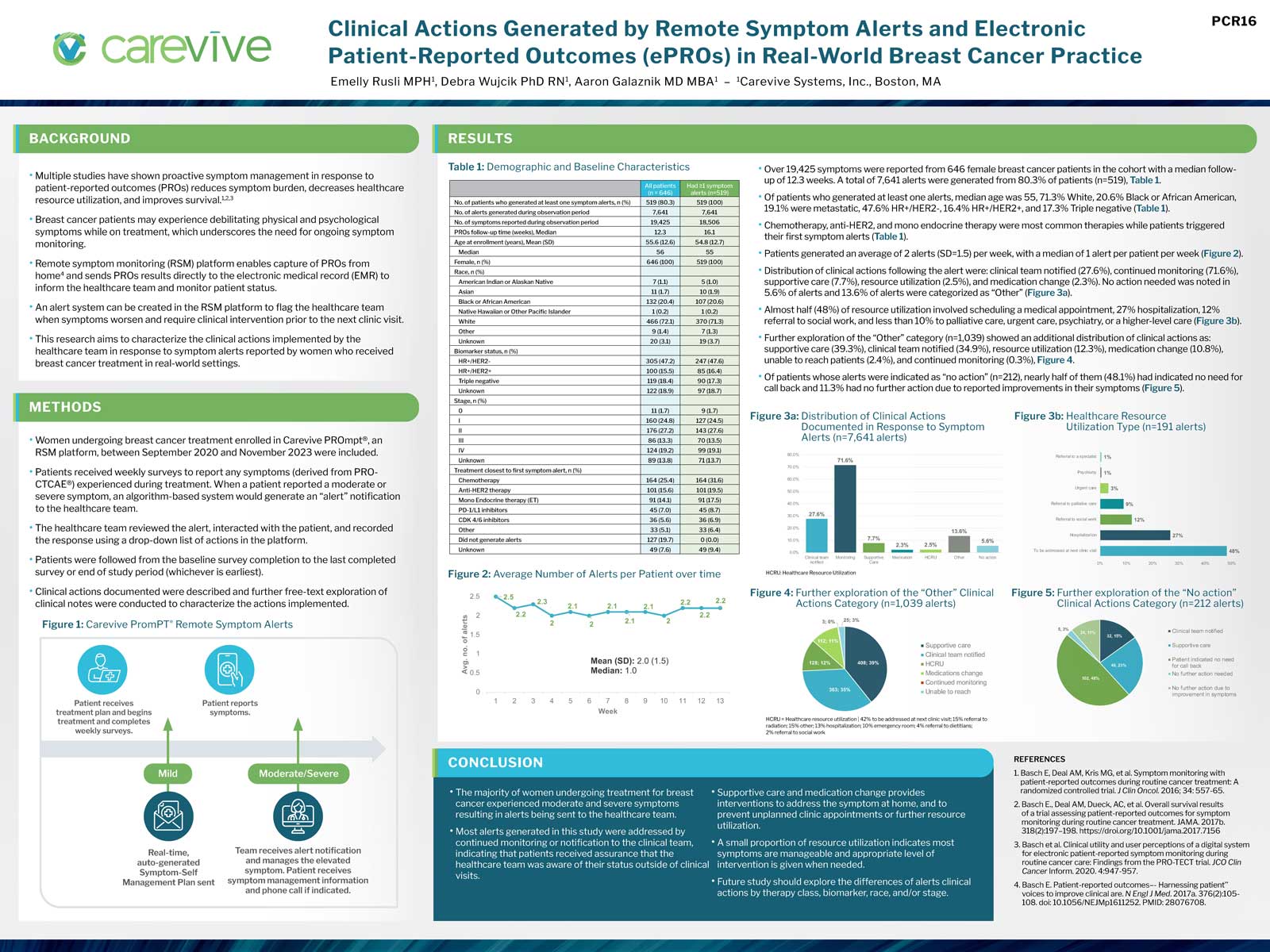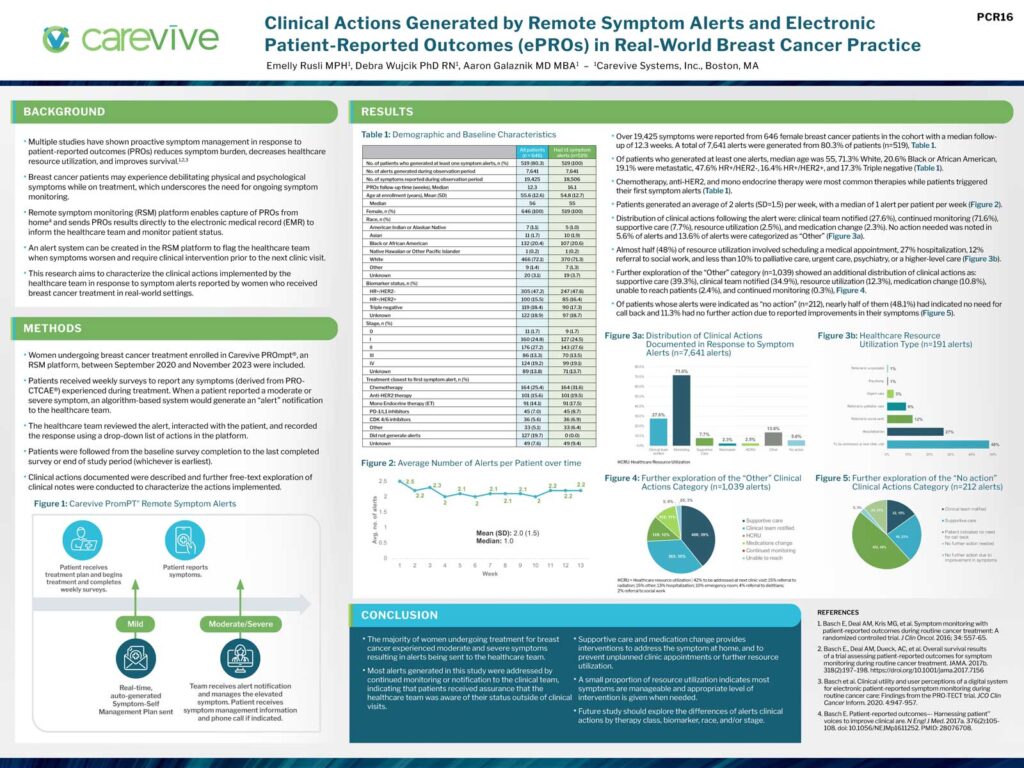
Authors: Emelly Rusli MPH1, Debra Wujcik PhD RN1, Aaron Galaznik MD MBA1
1 Carevive Systems, Inc., Boston, MA
Background
- Multiple studies have shown proactive symptom management in response to patient-reported outcomes (PROs) reduces symptom burden, decreases healthcare resource utilization, and improves survival.1,2,3
- Breast cancer patients may experience debilitating physical and psychological symptoms while on treatment, which underscores the need for ongoing symptom monitoring.
- Remote symptom monitoring (RSM) platform enables capture of PROs from home4 and sends PROs results directly to the electronic medical record (EMR) to inform the healthcare team and monitor patient status.
- An alert system can be created in the RSM platform to flag the healthcare team when symptoms worsen and require clinical intervention prior to the next clinic visit.
- This research aims to characterize the clinical actions implemented by the healthcare team in response to symptom alerts reported by women who received breast cancer treatment in real-world settings.
Methods
- Women undergoing breast cancer treatment enrolled in Carevive PROmpt®, an RSM platform, between September 2020 and November 2023 were included.
- Patients received weekly surveys to report any symptoms (derived from PROCTCAE®) experienced during treatment. When a patient reported a moderate or severe symptom, an algorithm-based system would generate an “alert” notification to the healthcare team.
- The healthcare team reviewed the alert, interacted with the patient, and recorded the response using a drop-down list of actions in the platform.
- Patients were followed from the baseline survey completion to the last completed survey or end of study period (whichever is earliest).
- Clinical actions documented were described and further free-text exploration of clinical notes were conducted to characterize the actions implemented.
Conclusion
- The majority of women undergoing treatment for breast cancer experienced moderate and severe symptoms resulting in alerts being sent to the healthcare team.
- Most alerts generated in this study were addressed by continued monitoring or notification to the clinical team, indicating that patients received assurance that the healthcare team was aware of their status outside of clinical visits.
- Supportive care and medication change provides interventions to address the symptom at home, and to prevent unplanned clinic appointments or further resource utilization.
- A small proportion of resource utilization indicates most symptoms are manageable and appropriate level of intervention is given when needed.
- Future study should explore the differences of alerts clinical actions by therapy class, biomarker, race, and/or stage.

